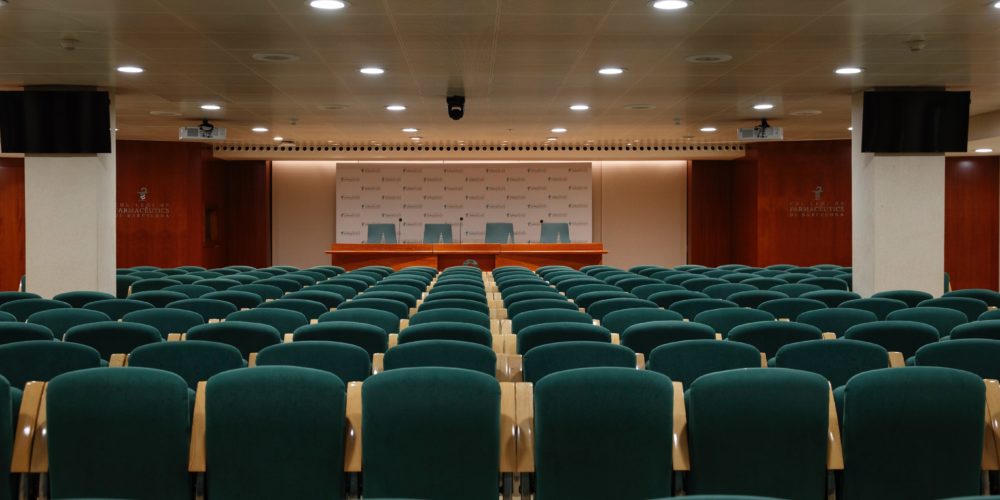When bytes and pixels start doing the travelling

I attended an elite global conference the other day. It had speakers and panels consisting of some of the world’s top business leaders and thinkers, and ran over three days.
You’re thinking: wait – where on earth was this held, during a pandemic? And how did you get there? And why would you risk going? Or are you on some weird immunity drug that’s causing hallucinations?
The answer, obviously, is that it was an online conference.
I enjoyed it thoroughly. I was able to pick and choose the few topics and speakers I wanted to listen to; I stayed invisible and did not have to dress up or mingle or make small talk or eat with strangers; and I paid the princely sum of zero dollars to attend.
Had I attended a conference like this one in the years before any of us had heard of the coronavirus, it would have been a very different affair. There would have been an entry fee of thousands of dollars. It would have been held in one of the world’s rich capital cities, so plane tickets and accommodation would come into the equation. Allowing for the travel time, a full week of my year would probably have been blocked off.
What, though, does anyone gain from attending this type of long, multi-speaker, multi-topic gathering? In knowledge terms, perhaps a few insights here and there from the more thoughtful speakers, and that’s it. I got that in the online version, and because my only outlay was a bit of time, the return on investment felt justified.
So why was anyone paying thousands of dollars for this kind of thing in the past? First, most people who attend these jamborees don’t pay for themselves; they are funded by their organizations, who treat the event more like a reward or a perk than an investment in learning. Secondly, the average person who routinely rocks up to these junkets is not really a seeker of knowledge. The payoff is different. The regulars actually come for the gathering, not the learning: the entry into an exclusive global elite; the shoulder-rubbing with the rich and the renowned; the card-swapping and the network-building; and of course the after-hours partying.
That’s why these shindigs have been going on for years. They have a big intangible payoff for the natural attendees. They offer a sense of status and accomplishment to their target audience.
In the new digital incarnation (funded by advertisers) I found myself wondering, given that we attendees were all invisible and could not see one another; given the lack of a glamorous setting or the impossibility of glass clinking – who is actually here? Is the regular crowd present? Or is this now a new audience, able to listen to renowned luminaries for the first time and actually imbibing the knowledge?
And what does this tell us about the future of the mega-conference?
Earlier this week, the popular video-conferencing service Zoom reported results that exceeded anyone’s expectations. Its daily participants rocketed from 10 million in December to a peak of 300 million in April; and it expects its annual revenue to go up threefold. Oh, and Zoom’s market value is now greater than that of the world’s major airlines – combined.
This will obviously change. Zoom will settle back into more normal usage once lockdowns ease; the airlines’ value will climb again when their planes get back in the air. Equally obviously, however, the great reset is on. We will of course return to offices and conferences and travel destinations – but not in the same way. Bytes and pixels will do a lot of the travelling now, not just human bodies.
This has profound implications for those who organise gatherings, who sell knowledge and learning, who move and host people. Going back to my conference, do you imagine that the video version that became necessary this year will just evaporate once Covid-19 is behind us? No, it will continue, because it reached new audiences and created a different experience. It will probably sit alongside the high-cost, in-person version, which also has its takers.
The challenge for those who are hit hardest by this development – hotels, airlines, educational institutions, event organisers, office providers – is to get ahead of the reset. The old normal is gone; the new one requires fresh thinking about the nature of experiences – why will people still gather and travel? The key, always, is to deliver genuine value, whether virtually or physically. Some things will stay obstinately orthodox; others will become dramatically digital. It’s time to understand why, and reimagine our offerings and repertoires.
I hope you’re on it.
(Sunday Nation, 7 June 2020)

Buy Sunny Bindra's new book
The X in CX
here »
Popular Posts
- NY’s wake-up call to the old guardNovember 9, 2025
- Save your strength for repairsNovember 2, 2025
- How to listen, really listenNovember 16, 2025
- Empathy is the missing code in CXOctober 26, 2025
- Is AI hiring your company into oblivion?November 23, 2025















